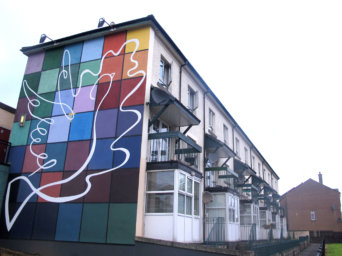- About
- Topics
- Picks
- Audio
- Story
- In-Depth
- Opinion
- News
- Donate
-
Signup for our newsletterOur Editors' Best Picks.Send
Read, Debate: Engage.
| located: | Ireland, United Kingdom |
|---|---|
| editor: | Maria João Morais |
After much wrangling, last week Theresa May finally managed to reach an agreement with Brussels, allowing Britain and the European Union to advance to the second round of Brexit talks.
Although sold as a victory for the British prime minister, the agreement reveals Westminster’s inability to effectively tackle subjects such as the delicate issue of the Irish border, which seems far from being solved.
Once again, recent events have showed that British politicians gave little thought to the dire consequences for Northern Ireland with the return of a hard border. Besides the drastic impacts on thousands of people who cross today’s invisible border daily, the issue seriously affects communities still struggling to overcome the ghosts of a long past of violence that pitted Catholics and Protestants against each other during The Troubles.
On the 20th anniversary of the Good Friday Agreement, which brought an end to the armed conflict that killed more than 3,500 people, Brexit is now unnecessarily hindering the peace process and undermining reconciliation between the two communities.
After realising the sensitivity of the issue, Theresa May assured that there would be no hard border between the north and south of the island, implying that Northern Ireland could somehow remain within the customs union.
At the same time, however, the Prime Minister promised its Democratic Unionist Party partners, that there will be "no regulatory barriers between Northern Ireland and the rest of the UK”.
Given that Theresa May also confirmed that Britain will leave the single market, it’s now difficult to guess how could she square the circle. In the next steps, however, the British Government should stop improvising and put peace and security as a priority in the negotiations.
